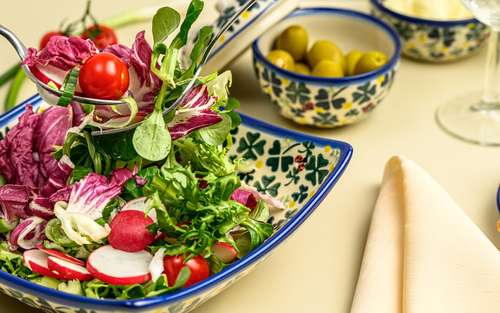It’s fascinating how food studies keep challenging what we think we know about nutrition. Recently, new research has thrown some exciting insights into the spotlight: well-designed plant-based diets can be just as healthy as the Mediterranean diet. If you’re keen on tweaking your eating habits without compromising on nutrition, this might be just the nudge you needed.
Many of us have grown up hearing praises about the Mediterranean diet—the delicious mix of olive oil, lean proteins, and fresh vegetables. But as plant-based diets gain momentum, researchers are now comparing the two like never before. You might find it surprising to learn how safe and beneficial plant-based nutrition can be, even when stacked directly against one of the healthiest diets known to us.
Have you ever wondered if there could be alternatives that match up to the Mediterranean diet in health benefits without relying heavily on animal products? This study provides thoughtful insight into how versatile your food choices can be while still providing essential nutrients and even reducing your carbon footprint!
Latest Study Findings on Plant-Based Nutrition
This section dives into some of the recent study findings that have everyone talking. Researchers have been putting plant-based diets under the microscope to see if they offer comparable nutritional value to the Mediterranean diet.
The study findings suggest that a properly planned plant-based diet can match the health benefits of the Mediterranean style of eating. Researchers meticulously examined various dietary plans, comparing nutrient levels, heart health markers, and even inflammation indicators, highlighting that both diets score well when properly followed. It’s like reassuring us that there’s more than one route to achieving optimal health!
Interestingly, one of the study’s points was that both diets offer ample antioxidants, fiber, and healthy fats. In many ways, the approach of plant-based nutrition is building on the legacy of the Mediterranean diet while carving its own niche. We see a future where flexibly switching between these styles of eating might depend more on lifestyle choices and environmental concerns rather than nutritional compromises.
The implications of these findings could be profound for individuals who prefer plant-based eating. It encourages us to look beyond traditional recommendations and consider modern, sustainable alternatives that are in line with current lifestyle trends!
An In-Depth Comparison: Plant-Based vs Mediterranean
Both plant-based diets and the Mediterranean diet have their fan bases, and they each have something unique to offer. In this section, we take a closer look at how they stack up against each other, addressing common debates head-on.
The Mediterranean diet is celebrated for its balance and emphasis on healthy fats like olive oil, lean proteins from fish, and frequent servings of fruits and vegetables. Many people credit this diet for longevity and a robust lifestyle. Meanwhile, plant-based diets, which typically exclude all animal products, bring an overwhelming variety of legumes, whole grains, fruits, and vegetables into the mix.
What makes these two diets interesting is that they both shine in promoting cardiovascular health, reducing the risk of chronic diseases, and even in supporting mental well-being. While the Mediterranean diet often includes a modest consumption of animal products, the plant-based approach stacks up with an array of nutrient-dense options—think nuts, seeds, and legumes—that deliver similar health benefits.
Imagine having the best of both worlds: the taste and texture of a hearty Mediterranean dish and the health advantages of a green, plant-forward meal. For those committed to a vegan or vegetarian lifestyle, this research is a breath of fresh air, offering reassurance that your dietary choices are backed by science!
Nutritional and Environmental Benefits: A Closer Look
This section briefly discusses how plant-based and Mediterranean diets impact both our nutrition and the environment. It’s an exciting perspective that ties personal health benefits to broader, global outcomes.
On the nutrition front, both diets are rich in vitamins, minerals, and antioxidants. The plant-based diet focuses on whole foods and avoids many processed items, essentially offering a more direct path to nutrient absorption. You might relate to thinking, ‘If I can get my greens in all their natural glory, why complicate things with extras?’ This straightforward approach is as appealing as the simplicity of a summer salad.
When it comes to environmental benefits, plant-based diets have a significant edge. Reduced reliance on animal farming means lower greenhouse gas emissions, less water usage, and a decreased impact on land resources. It’s like having a double win—not only are you eating healthy, but you’re also doing your part to protect our planet. As more studies and reports echo similar environmental concerns, it’s hard not to feel motivated to consider what we put on our plates.
Interestingly, adopting a plant-based approach doesn’t mean you have to switch overnight. Many people gradually integrate more plant-based meals into their routines, comparing the environmental and health benefits to those experienced with the Mediterranean diet. It’s a journey of gradual change, much like taking a leisurely stroll in a sunlit garden rather than sprinting through a crowded city street.
This research reflects a broader shift in eating habits. As dietary research continues to evolve, we find that it’s possible to maintain optimal nutrition while also not compromising on taste or ethical considerations.
Embracing a Diet That Resonates With You
In this final section, we explore how you can personalize your eating plan based on these insights. Whether you lean towards a plant-based lifestyle or cherish the staples of the Mediterranean diet, the key is to choose what resonates with you.
Many people find that blending elements from both diets can be a wonderful way to enjoy a variety of flavors while staying on top of your nutrition game. It’s not necessarily about adhering rigidly to one diet, but more about understanding what works best for your body and your lifestyle. After all, nutritional study has taught us that individuality plays a huge role in what constitutes a healthy diet.
Are you looking for a sustainable, health-oriented approach that no longer feels like a compromise? This is the moment to experiment, perhaps starting with meatless Mondays or trying out a new Mediterranean-inspired plant-based recipe. Consider how small, thoughtful changes to your eating habits can contribute to both your well-being and that of the planet!
You may even recall a time when a simple lifestyle adjustment gave you a burst of energy or improved your mood. Embrace that feeling as you transition to a diet that suits your personal choices and values. There’s a vibrant array of options available that make it easier than ever to nourish your body without sacrificing taste or ethics.
In essence, the solution to healthier eating might be more flexible than we once assumed. With robust study findings supporting both plant-based diets and the Mediterranean diet, there’s plenty of room to experiment and find your personal balance. Let your plate be a canvas that reflects not only your health goals but also your commitment to a sustainable future!
Ultimately, whether you’re drawn to the heart-healthy fats of the Mediterranean lifestyle or the eco-friendly benefits of plant-based nutrition, the evidence is compelling: you can enjoy a wealth of health benefits with either approach. The real takeaway is that smart, well-planned eating habits—regardless of the specific diet—lead to a healthier, happier life. So why not savor the journey and make your next meal a celebration of health and wellness?




